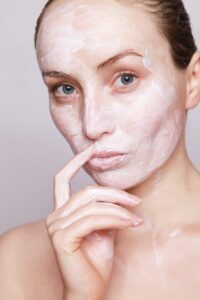Retinoids, which include compounds like retinol, tretinoin, adapalene, and others, are derivatives of vitamin A and are known for their skin-renewing properties. However, they are not universally suitable for everyone, and their use may depend on individual skin types, conditions, and sensitivities. Here are some considerations:
- Skin Type:
- While retinoids can benefit various skin types, those with sensitive skin may experience irritation. It’s advisable to start with a lower concentration and gradually increase if tolerated.
- Skin Concerns:
- Retinoids are commonly used to address issues such as fine lines, wrinkles, acne, and uneven skin tone. If you have specific skin concerns, consult with a dermatologist to determine the most suitable retinoid for your needs.
- Pregnancy and Breastfeeding:
- Pregnant or breastfeeding individuals are generally advised to avoid retinoids, especially prescription-strength ones like tretinoin, due to potential risks to the developing fetus or infant. It’s crucial to consult with a healthcare professional if you are pregnant, planning to become pregnant, or breastfeeding.
- Sun Sensitivity:
- Retinoids can make the skin more sensitive to sunlight. It’s essential to use a broad-spectrum sunscreen during the day when using retinoids to protect the skin from harmful UV rays.
- Other Skincare Products:
- Some skincare products, such as products containing benzoyl peroxide, salicylic acid, or vitamin C, may interact with retinoids or increase the risk of irritation. Consider consulting with a dermatologist to ensure compatibility with your existing skincare routine.
- Start Slowly:
- If you’re new to retinoids, start with a lower concentration and gradually increase frequency as your skin builds tolerance. This can help minimize potential side effects like redness and peeling.
- Prescription vs. Over-the-Counter:
- Stronger retinoids, like tretinoin, are available by prescription, while milder forms, such as retinol, can be found in over-the-counter products. Your dermatologist can help determine the most appropriate strength for your skin.
- Consult a Dermatologist:
- It’s advisable to consult with a dermatologist before starting a retinoid regimen. They can provide personalized recommendations based on your skin type, concerns, and medical history.





